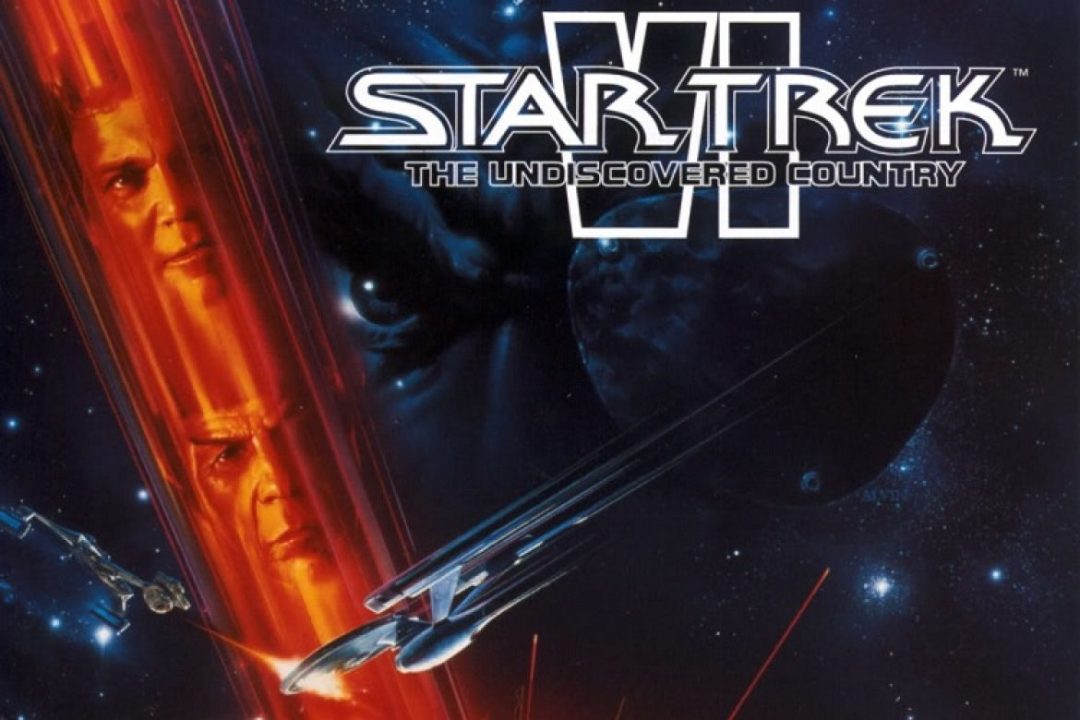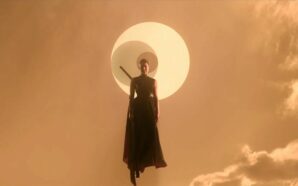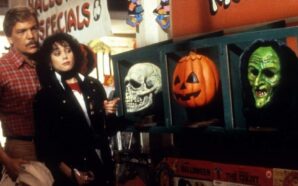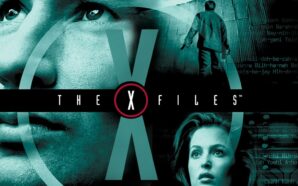Remarking that The Undiscovered Country, that’s the sixth Star Trek film if you’re counting, is my favourite of the series often leads to dirty looks and me being asked “You mean your favourite Star Trek film other than Wrath of Khan, right?”. But no, I’m one of ‘those people’ who prefer another film to the prestigious Wrath of Khan; don’t get me wrong I like Wrath of Khan a lot but for me nothing comes close to The Undiscovered Country and this article is to explain exactly why. Call it an impassioned riposte or a confession, this is why The Undiscovered Country is my favourite Star Trek movie.
Star Trek on television is known for its exploration of real world social and political issues but on film those themes often failed to come across. Saving the whales in Star Trek IV just about managed it but it seemed that no real world issue was big enough for a large space adventure film until the Cold War. The period of detente between the USA and its allies and the USSR proved to be the perfect real world event on which to base the final Star Trek film with the original cast, ending on a moment of peace and tackling how our aged and beloved characters deal with the fact that so much has changed since their early adventures. Kirk hating the Klingons as much as he does early on in the film does seem a little convenient to the plot but it’s worth it for the pay off of Kirk’s understanding of moving on while still holding on to his youth. I also like how the film balances its sci-fi plot with the real world events on which it was based; there are enough mentions and allusions to the actual cold war such as the old Vulcan proverb “Only Nixon can go to China” and yet it’s all buried deep enough for the audience to simply enjoy a rollicking space adventure. It’s not just the real world politics that The Undiscovered Country gets right however, we also get to see more of the internal machinations of both Starfleet and The Klingon Empire with the dinner scene between envoys of both aboard the Enterprise being fascinating with both factions trading political ideas. Despite Earth supposedly being a utopian society it does make for more interesting viewing when there is conflict among the human characters of both the Federation and Starfleet and I love that the writers ‘bent’ Roddenberry’s rules on this occasion to allow such conflict.
I’ve always loved the zero gravity assassination scene and to this day it still surprises me how graphic it is. Arms are flying off and bubbles of pink blood shooting towards the camera, using the same technology as the T-1000 in Terminator 2 and whatever that thing was in The Abyss. Even though the film is a PG it always felt like I was watching something I was too young to watch when I was younger. I have to imagine that the inclusion of gravity boots in this film instead of the hover boots from Star Trek V was intentional to try and distance itself from the failings of The Final Frontier but I guess it could just be a coincidence.
The trial scene is also a standout of the entire film series; often the sets and locations used in the classic Trek films feel very similar and fake but that isn’t true for the Klingon trial which is incredibly atmospheric. This can largely be attributed to Nicholas Meyer who directs the film perfectly capturing the spirit of Star Trek without it getting stagnant, he seems to be always striving to make it feel new and fresh. Overall I believe DeForest Kelly’s acting is overlooked through his time on Star Trek but none more so here as he recalls trying to save chancellor Gorkon’s life, his stubbornness only matched by his desire to reveal the truth even though he knows he will not be listened to. It’s a small thing but I really like the cut from having Chang speak Klingon to him speaking English – Hunt for Red October style – you would think that such a noticeable technique and the fact that we are hearing something differently than all the characters would take us out of the hold of the film but it does the opposite and I find myself more engrossed. I really love Chang as a villain, he’s Klingon enough for the plot and yet different enough from any Klingon we have encountered before to make him feel unique, something that is also carried on to his look in the film. His constant quoting may make him feel like a discount version of Khan at times but come on, who doesn’t want to hear Christopher Plummer quote Shakespeare in the original Klingon.
I won’t deny that there are some problems with the film but none that drag the film down in quality in my opinion. Why is there a Romulan ambassador to the Federation? I have no idea but none of the movies have ever gotten the Romulans right. I will also admit that Valeris being the traitor was incredibly obvious because there was no one else to suspect other than those two dopey security guards. The twist would have been much better if Saavik was in the film instead and was revealed to be the traitor which was what early drafts of the script had because there is much more investment in her as a character than Valeris. Also, and this is a small thing, but I’ve never been able to take the President of the Federation seriously because he looks far too much like the beard-swishing Kung-Fu master from Kill Bill Volume 2.
I always enjoy Kirk and McCoy’s excursion to the Klingon gulag because it’s a fun, almost standalone episodic adventure, and it reminds me of The Temple of Doom which is my favourite of the Indiana Jones films. The sequence contains most of the humour of the film and watching Kirk fight anyone is fun, let alone another version of himself which feels very original series. The Undiscovered Country is great at giving homages to classic Trek without overstuffing the movie with them which is a temptation with the ‘final’ film in the series. The film also takes the crew’s previous adventures into consideration by pointing out that the characters have changed over the years whether their rank has changed, as is the case with Captain Sulu, or the evolution of their personalities as is the case with Spock who now lies (or implies) and understands jokes. The film subtly enforces that this is the end of an era for Star Trek and Kirk and Spock’s talk of how they are getting old concludes the themes begun in Wrath of Khan and the tale of this crew as a whole, although we will see most of them back again at some time or another.
The third act attack on the Enterprise and Excelsior by Chang’s Bird of Prey is one of my favourite sequences in all of Star Trek, second only to maybe the destruction of the Enterprise in The Search for Spock. Once again it’s expertly directed (I’m so glad Nicholas Meyer is going to be involved in some capacity with next year’s Star Trek Discovery), exhilarating and never fails to give me goosebumps. We see the Enterprise come under fire a lot but never, not even in The Wrath of Khan, do I feel that it is as tangible as it is here. The constant momentum and lightning pace is created through the near constant camera movement and Cliff Eidelman’s dark and militaristic score which is very different from any other Star Trek music and it’s only at the end of the film when we get the classic theme.
The final scene of The Undiscovered Country and classic Star Trek as a whole is nothing short of a thing of beauty. Spock saying “Go to Hell” to Starfleet who want the crew to dock and be retired and Kirk directing Chekhov to take them to “the second star on the right” while the classic theme music plays is a fitting farewell. Having the cast’s signatures during the credits is undoubtedly cheesy but that’s fine, it’s the last film featuring the original crew and it would feel wrong if it wasn’t.
So that’s my reasoning of why The Undiscovered Country is my favourite Star Trek film but what’s your favourite Star Trek movie and why? Let me know in the comments and geek out with me about Star Trek on Twitter @kylebrrtt.








